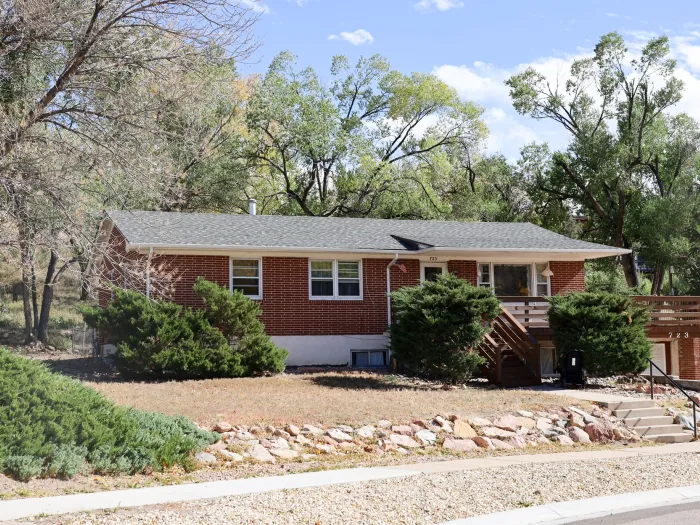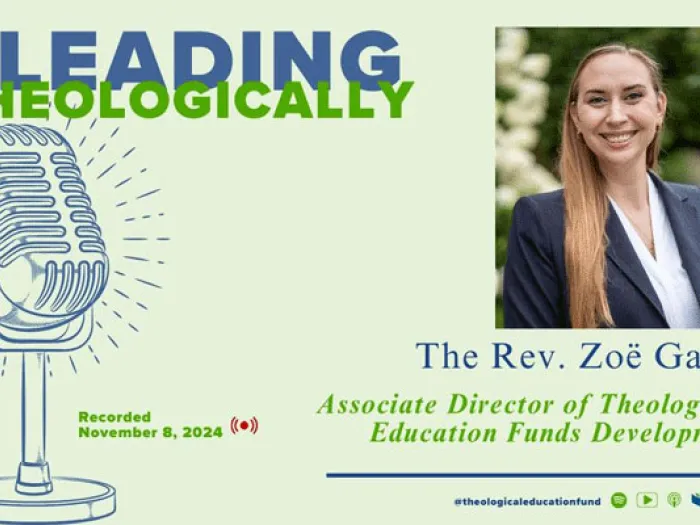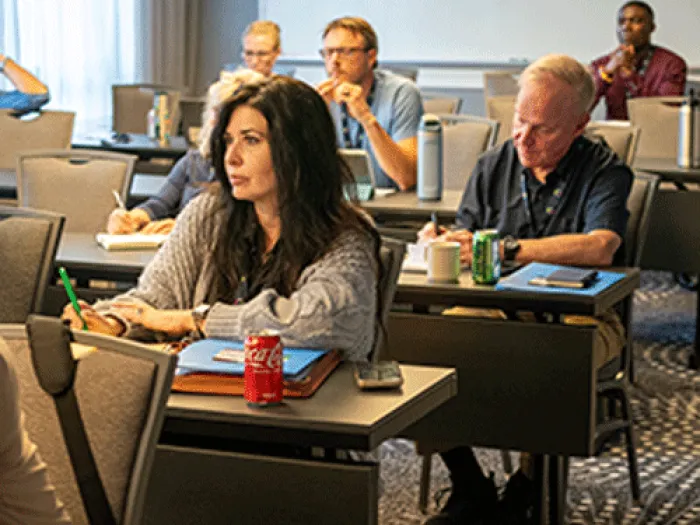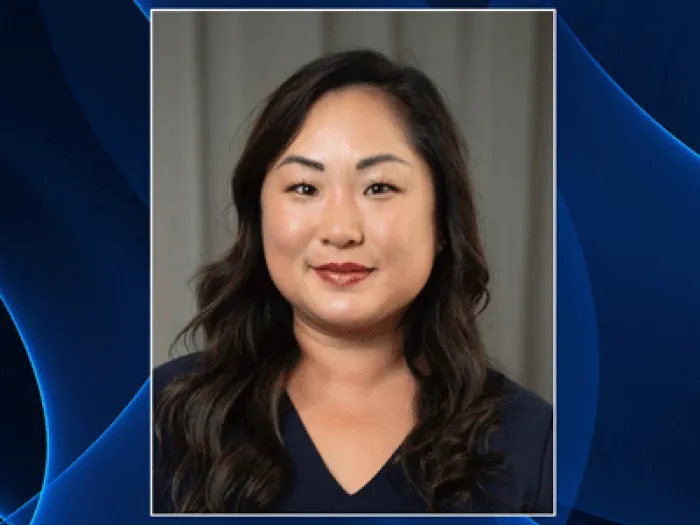‘An absolute delight of a human being’ takes to the airwaves of ‘Leading Theologically’
Union Presbyterian Seminary’s president, Dr. Jacqueline E. Lapsley, is the guest of the Rev. Dr. Katherine Smith


LOUISVILLE — Introduced as a “scholar, teacher, mother, ruling elder and an absolute delight of a human being,” a “Renaissance woman” who’s “wise and witty and grounded and visionary,” Dr. Jacqueline E. Lapsley, inaugurated earlier this month as the eighth president of Union Presbyterian Seminary, was the guest Wednesday on “Leading Theologically.”
The host was the Rev. Dr. Katherine Smith, a teaching elder in the Presbytery of New Hope, the associate dean for strategic initiatives at the Duke Divinity School and the chair of the Committee on Theological Education. Listen to their rich 30-minute conversation on “Painful Grace” here or ">here.
Smith opened with the Rev. Dr. Katie Geneva Cannon’s question normally posed by the podcast’s departing host, the Rev. Dr. Lee Hinson-Hasty: What is the work your soul must have?
We’re called to this time and place for a particular reason, Lapsley responded. “As we know, the walls between churches and society are getting lower and lower. There’s more porousness between community and church,” she said. “This is a huge opportunity for churches … to witness in the world to what Jesus and the Spirit are about. That’s work I think about all the time: How do we form leaders for this moment in the church’s life and the life of our world?”
Say more about “those spaces when the walls come down and cracks open,” Smith suggested.
More and more churches “are using their property in a different way” as they determine “how do they serve the needs more directly of the people who are right around them in their community,” including the construction of affordable housing units, Lapsley said. Others are selling their buildings or looking at different ways to serve the community with part of their property they’re not using. Some are creating community gardens.
Increasingly, faith communities are “listening to their neighbors, finding out what their needs are and figuring out a way to be in partnership with them to serve those needs,” Lapsley said. “I just feel like that’s different from an older model of the church which saw itself as having some separation from the people who were not church members. This feels very different now, and in a wonderful way.”
Referring back to Lapsley’s inaugural address, which can be viewed ">here, Smith asked Lapsley, “How do we recover and excavate our past without jettisoning it?”
Lapsley said she sometimes hears that a faith community’s or institution’s past “seems unusable, because there’s so much that’s harmful. On the other side, I hear sometimes from folks who say, ‘We just need to hold on to our traditions.’”
“I think God is calling us to a kind of middle way — looking at the past carefully, and attending to, nurturing and stewarding what is good there … We are stewards of that, especially now in our time when a kind of progressive Christianity is a bit on the ropes. This is the time when we need to lean into those traditions, because they are a rich resource — not just for us Christians in the world, but for the world itself. There’s so much good there.”
“At the same time … there’s a lot of baggage … there’s a lot of really terrible stuff in there related to racism and sexism and various other forms of discrimination — and the ecological crisis. We have to take some ownership for the way the church is complicit in the ecological crisis.”
“I see that as a throughline in the work we are called to do, and that includes listening to lots of other voices outside of our traditions. As I said in my inaugural address, all truth is God’s truth. That means that we listen,” Lapsley said. “That’s part of our theological heritage in the Reformed tradition: to listen everywhere to hear how God might be speaking to us in this moment from all different quarters. I do find this an energizing, exciting time.”

Smith said a friend and colleague talks about “hope as an anchor God has dropped in the future.” She asked Lapsley about “the lessons learned about how to do this work well. What are the qualities and attributes that help us reckon with a painful grace?”
It’s important to have “honest conversations about one’s own history, broad and honest conversations,” Lapsley replied. “It can be painful, but it can also be a time of great growth and of leaning into a different future.”
The “painful grace” theme came as Lapsley was thinking about “ ">Wildcat,” Ethan Hawke’s new film about Flannery O’Connor. “The grace in Flannery O’Connor’s stories comes through in those painful moments,” Lapsley said.
For O’Connor, God is acting in us when we are at our lowest. “It’s not a sentimental understanding of grace at all. I find that resonant with my own thinking about the place of the church and seminaries in our own moment.” It’s a hard moment, “and maybe it’s a hard moment for a reason. Maybe this is a time when God is working in us in a way that will help us grow into a future that maybe resonates more fully with who we are to be and are called to be.”
Smith wondered: What does it mean to commit to leading an institution in such a time as this? “You’re choosing to lean into it,” Smith said, “and I really love that and affirm it.”
Almost daily, Lapsley said, she has this thought about leading a seminary: “Oh, my gosh. What have I done?”
“It has increased and intensified my prayer life,” she said. “I take [the demands of the job] and lift it up to God,” acknowledging, “I’m not Jesus. It is not my responsibility to save anyone or anything. My job is to be faithful in this particular moment in this place on this day, and that’s what I seek to do.”
“I firmly believe that God’s grace can flow through institutions. Of course, sin can also flow through institutions. We have abundant evidence of that,” Lapsley said. “Our job is to try to minimize the sin and maximize the channels of grace … flowing through institutions. When that happens, people will feel the benefits of it.”
Asked where she finds delight in her work, Lapsley said the joke used to be that her spiritual gift was fun. “If we have more fun, we will be about the work of the church in a joyful, more faithful and successful way,” she said. “We ignore joy and play and sometimes silliness to our peril.”
Union Presbyterian Seminary has a small fund that helps incorporate play into coursework. “What a wonderful resource!” Lapsley said, adding she’s enjoyed “talking about using that in ways that will bring more joy.”
“When there’s more joy,” she said, “we’re all going to be better off.”
You may freely reuse and distribute this article in its entirety for non-commercial purposes in any medium. Please include author attribution, photography credits, and a link to the original article. This work is licensed under a Creative Commons Attribution-NonCommercial-NoDeratives 4.0 International License.




